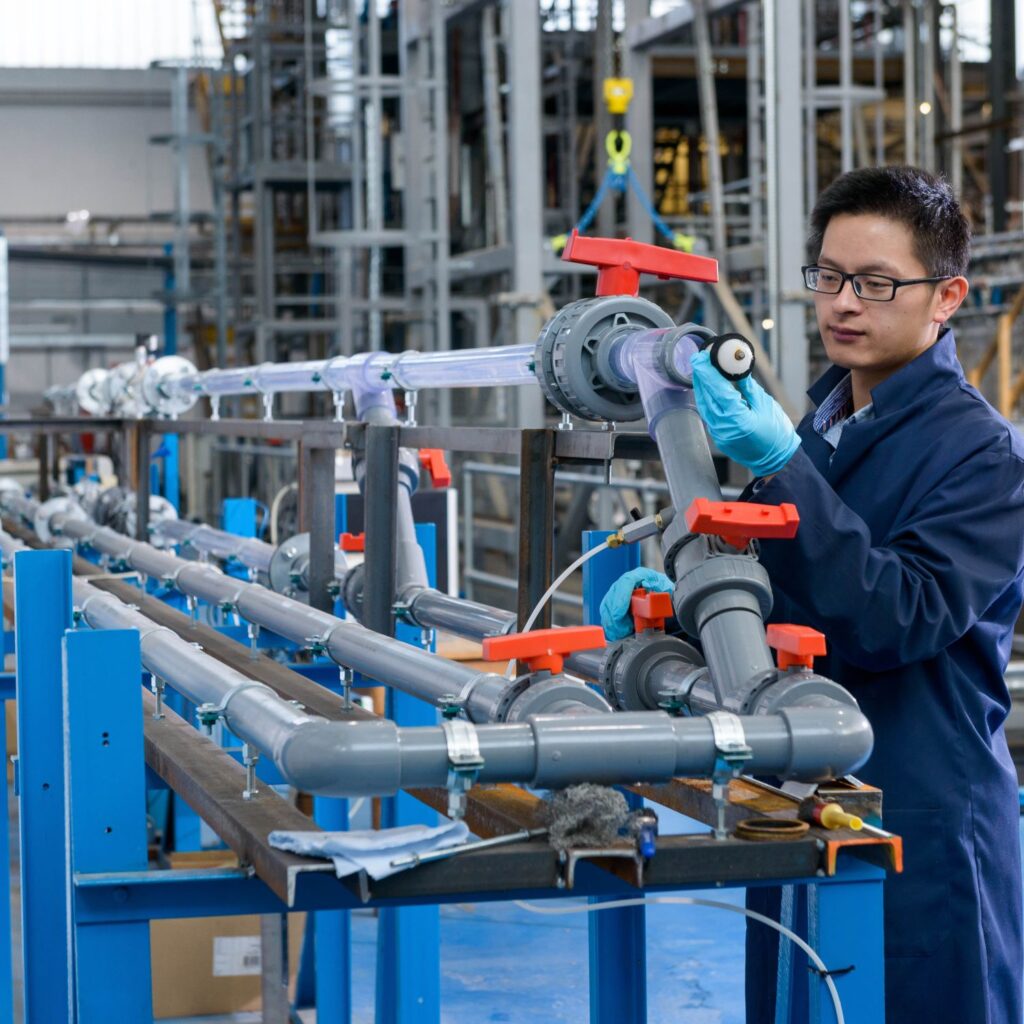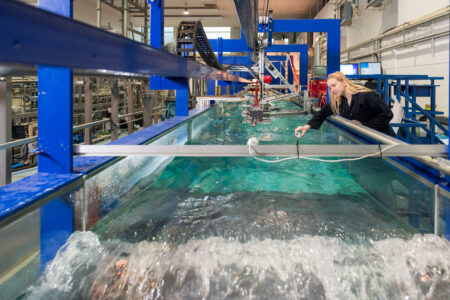Artificial intelligence (AI) is at the forefront of conversations across the globe. In his new book “On Leadership: Lessons for the 21st Century”, former UK prime minister Tony Blair argues that leaders in modern politics need to understand, master, and harness the technological revolution happening right now.
It’s not just modern leaders that need to understand the impacts of AI and other emerging technologies like robotics, machine learning, augmented and virtual reality and quantum computing – if predictions are to be believed, these technologies will transform every walk of life. If you aspire to become a leader in AI, Cranfield University is your destination. Cranfield has the largest number of engineering and technology master’s students in the UK and is renowned for its engineering expertise and sustainability initiatives. It ranks among the top 30 universities globally for Mechanical, Aeronautical, and Manufacturing Engineering (QS World University Rankings 2023) and within the top 15% for sustainability efforts (Times Higher Education Impact Rankings 2023).
But what makes Cranfield University a top choice for anyone seeking a direct route to a career in innovative and emerging industries is its unique combination of research excellence and closeness to industry. In the Research Excellence Framework 2021, 88% of its research is classed as “world leading” or “internationally excellent.” Whether it’s about building a sustainable future for all or driving innovation in human and machine intelligence, the university offers students the opportunity to work on industry-led projects and build strong connections with potential employers, even before graduating.
Springboarding your career in AI

Studying at Cranfield University provides a direct route into the AI industry focusing on AI use. Source: Cranfield University
With several programmes closely integrated with research on AI and machine learning, Cranfield University is at the forefront of new technologies and innovations. These programmes include Applied Artificial Intelligence MSc, Computational and Software Techniques in Engineering MSc and Autonomous Vehicle Dynamics and Control MSc. Students gain practical experience by working on real-world industry projects through the Group Design Project (GDP).
“Through projects, case studies, and industry-sponsored research, students gain experience in designing, developing, and deploying AI solutions for applications such as advanced air mobilities, autonomous vehicles, robotics, and intelligent traffic management,” says Dr Yang Xing. “The university’s focus on developing both technical and soft skills, such as project management, communication, and teamwork, ensures that graduates are well-rounded professionals ready to enter and succeed in competitive AI-driven industries.”
Dr Yang’s research interest focuses on applied artificial intelligence on human-autonomy collaboration and human-centred autonomous vehicles. He is also the lab director of the HUMAX Lab at Cranfield University, which is focused on the design, testing, and validation of human-centred hybrid autonomous vehicles and transportation systems.
His students can apply his research to real-world projects in several ways. They can take part in independent practical sessions within related MSc modules, where they develop their own AI systems, such as deep learning models, using real-world datasets. Through the GDP, students gain experience working in teams of five to seven people on larger, more complex projects that address national research priorities or industry challenges.
Sustainability in AI

Cranfield University master’s students work on projects, case studies, and industry-sponsored research. Source: Cranfield University
Cranfield University is at the forefront of imagining and delivering a sustainable green planet. The Data Science and Artificial Intelligence for Sustainability MSc and Advanced GIS and Remote Sensing MSc are part of the university’s efforts to realise this mission, using powerful digital tools and various digital models to solve and manage the increasingly complex problems related to data science. Students will master skills such as geographic information system (GIS), decision science, data analytics, AI, and computational fluid dynamics (CFD) – all of which can be applied to tackle the challenges faced by energy systems worldwide in pursuing decarbonisation and digitisation.
“The unique knowledge gained would: i) facilitate lifecycle assessment, allowing cost-effective, socially acceptable, and environmentally beneficial deployments of renewable generators, ii) introduce the studies from pursuing sustainability globally, where the students can leverage the transferrable skills and knowledge to address challenges in different countries,” says lecturer Dr Da Huo.
Cranfield’s close collaboration with the energy and transportation sectors for over 20 years has shaped the programme. The university’s partnerships with key industry players guarantee that the curriculum is relevant, timely, and meets the evolving needs of energy sector organisations.
Much of this is achieved through working with industry. “The students have been undertaking their group and individual projects that address the issues in smart grid and energy systems,” lecturer Dr Da Huo says. “The most common way is through our collaborations with industrial partners, who recognise decarbonisation challenges and seek to test innovative solutions or address specific technical issues.”
Through guest lectures, sponsorships, and workshops, these collaborations offer students practical experience that will benefit their future careers in the energy industry. Industry partners present case studies showcasing real-world problems and solutions, enabling students to learn from past energy challenges and apply their knowledge to today’s landscape.
One example is an MSc project in collaboration with Ricardo Group, a global team of consultants, environmental specialists, engineers, and scientists that deliver sustainable solutions. Students got to explore using machine learning for data imputation to address the frequent issue of missing data during the collection phase, which was conventionally handled manually. “The MSc project has effectively improved the efficiency of filling missing data and identified the most effective and suitable machine learning approach for the company considering the ease of use, accuracy, and computation time,” says Dr Da.
With an industry-led education in hand, graduates become some of the most desirable in the world for energy companies to recruit. “Our alumni have successfully entered the energy industry in positions such as research analyst, consultant for energy, technical specialist and engineers,” says Dr Da. “With the ongoing digital transformation, more of our alumni are securing jobs as digital transformation leads, digital energy solutions, and data analytics.”
Follow Cranfield University on Facebook, Instagram, LinkedIn, WeChat, Weibo, X, and YouTube.













